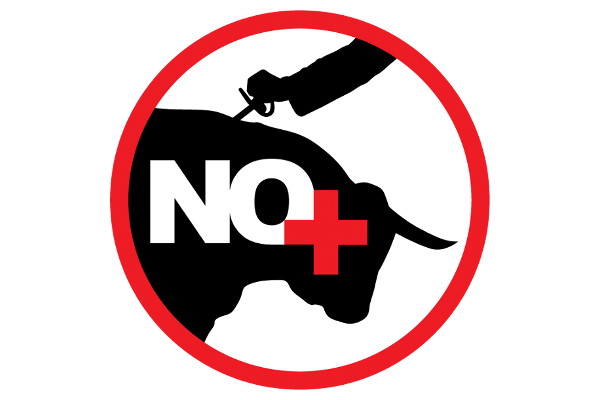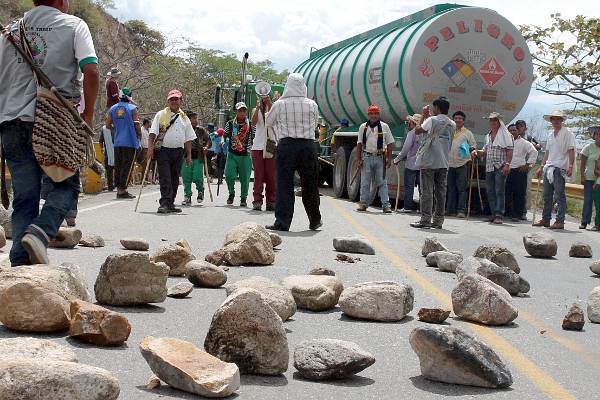By: Vanessa Morris – 18th February, 2009
When Mrs. Olga Castillo Campos confronted the two American soldiers serving under the auspices of Plan Colombia who drugged, accosted and raped her 12 year old daughter, their response was “yes we raped her, so what? We are in Colombia. The law doesn´t affect us”. They proved to be correct.
On the evening of Sunday 26th August 2007, whilst briefly stopping to use the lavatory in a restaurant, the 12 year old daughter of Mrs. Olga Castillo Campos was coerced by two men, later identified as Michel J. Coen and Cesar Ruiz, into drinking an unidentified yellow liquid which left her incapacitated. The two men brought her back to their barracks, La Fuerza Área (The Air Force Area), where they violated her in a locked room various times until they discarded her in a park at 8 in the morning the following day, Monday 27th August 2007.
Local justice
Mrs. Castillo Campos embarked on a pursuit of local justice for her daughter. She denounced this trifurcated crime of intoxification, abduction and rape of a minor before various bodies: “La Fuerza Área”, The Technical Investigations Unit (CTI) and the Supreme Court of Justice. All were in vain.
Ironically, instead of being helped, the victims have been caused further suffering. On a state level, the family has been palmed off from one official organ to the next, threatened and refused police protection and relocation. On an international level, they have been prey to attempted bribery and coercion. On the 25th September 2008, an investigator from the United States Embassy, Jon Ramirez, contacted Mrs. Castillo Campos. He tried to silence her with a sum of money, and pressured her to sign an incomprehensible document written in English. She thwarted his efforts, steadfast on achieving justice.
Further reported cases
The case of Mrs. Castillo Campo is not a unique and isolated incident but fits into a pattern of international crimes committed by American soldiers serving under Plan Colombia. Referring to sexual violations alone, in 2006 there were 23 reported cases attributed to the Plan Colombia service men, and a further 14 more in 2007. In 2004, US soldiers and technicians produced pornographic videos of Colombian adolescents, which they sold on for $10,000 pesos (about £2.50). In 2005, US militaries were caught selling ammunition to the FARC , and in another case to the paramilitaries. In March that same year, U.S. service members were accused of smuggling cocaine aboard a military camouflaged aircraft and the hit-and-run deaths of two Colombian soldiers was thought to be attributable to US troops. These incidents share a common denominator with that of Mrs. Castillo Campo: none resulted in successful local justice.
Immunity treaty
The United States has privileges by virtue of being a hegemonic state: the promise of the much desired military and fiscal aid can be made dependent on certain provisions. As such, the Colombian government signed a Military Missions Agreement 1975 granting immunity to the U.S. Military personnel and contractors operating on Colombian soil so as to secure US aid. Mrs. Castillo Campos was not informed of this agreement. Consequently, she is still unceasingly searching for justice in Bogota whilst her daughters are being minded by different family members in their home town. The family separated. The daughters have been refused entry into school because the various institutions fear the security risk that the children would bring.
International justice
The assumption is that if such American soldiers are not prosecuted in Colombia, then justice will none-the-less prevail for them in the American judicial system.
If we assume that they do receive justice in the United States, there is still a negative impact on the Colombian victims. Prosecution of a local crime in a foreign jurisdiction is physically and emotionally removed from the victims. The victims do not get the chance to stand up in court and have their story heard which normally serves to validate their victimhood. Michael Coen, one of the protagonists in the Castillo Campos incident, was removed from Colombia. Perhaps he received justice in Colombia, or perhaps not. The perceived importance of victims is demonstrated by the fact that Mrs. Castillo Campos was not informed either way.
Foreign prosecutions also delegitimise the authority of the Colombian judicial system. In 2005, the country’s chief prosecutor, Edgardo Maya, condemned the diplomatic treaty as unconstitutional and unsuccessfully demanded a congressional review. Even the Colombian Senator, Jimmy Chamorro, conceded: “Obviously, we believe that the treaty should be revised, but the political reality is that it’s not going to be revised. That would be disastrous for [Uribe’s] democratic security strategy.”
Why should it be assumed that American soldiers are subject to justice on their home soil?
Colombians are rightly skeptical. In 2000, the former commander of the U.S. military’s counter-drug mission in Colombia, U.S. Army Col. James Hiett, was ironically tied to a drug-smuggling case, but he was cleared of wrongdoings by US Army investigators. For the hit-and-run deaths of two Colombian soldiers the U.S. government headed two investigations, without Colombian prosecutor involvement, and concluded that there was no evidence against the implicated sergeant.
If American soldiers presumed to have committed human rights violations do not receive sufficient retribution, then this will transmit the message that such troops are at liberty to act as they please. This may explain why Michel J. Coen and Cesar Ruiz replied with a shrug of the shoulders to accusations of raping a minor.
The Human Rights Commitment of Plan Colombia
Hypocritically, American foreign policy and particularly Plan Colombia are supposedly dedicated to protecting human rights. According to the 1961 Foreign Assistance Act (230, P.L. 87–195, Sec. 502B) “international security assistance programs of the United States -should be conducted- in a manner which will promote and advance human rights and avoid identification of the United States, through such programs, with governments which deny to their people internationally recognized human rights and fundamental freedoms”. The Leary amendment in Plan Colombia states that no unit may receive US funding if found guilty of human rights violations. Furthermore, the 1961 Foreign Assistance Act and the 2001 Foreign Operations, Export Financing and Related Programs Appropriations Act contain human rights provisions pertaining to regulation of foreign armed forces.
The sincerity of US commitment to human rights is put into question. The US President has the power to override the human rights provisions and continue with Plan Colombia even though such requisites are not fulfilled. Both President Clinton and Bush have done so, explaining their decisions in terms of “national security interest” and the detrimental effects the human rights provisions have to the overall effectiveness of Plan Colombia.
Possible justice?
Human rights violations in Colombia are now in the spotlight: the “falso positivo” scandals; the purging of the military; and the denunciation from the head of the Americas Department of Human Rights Watch, José Miguel Vivanco, condemning Colombia of violating more human rights this year alone than those violated under the Pinochet dictatorship. The new American President, Barak Obama, has already proved to be more faithful to human rights commitments, questioning the future of Plan Colombia and the possible signing of the TLC (Free Trade Agreement) for reasons including human rights violations. Now is the exact time to draw attention to the Castillo Campos case. With human rights back on the agenda it is hoped that Mrs. Castillo Campos can finally receive justice for herself and her young daughter.
>
Si encuentras un error, selecciónalo y presiona Shift + Enter o Haz clic aquí. para informarnos.


